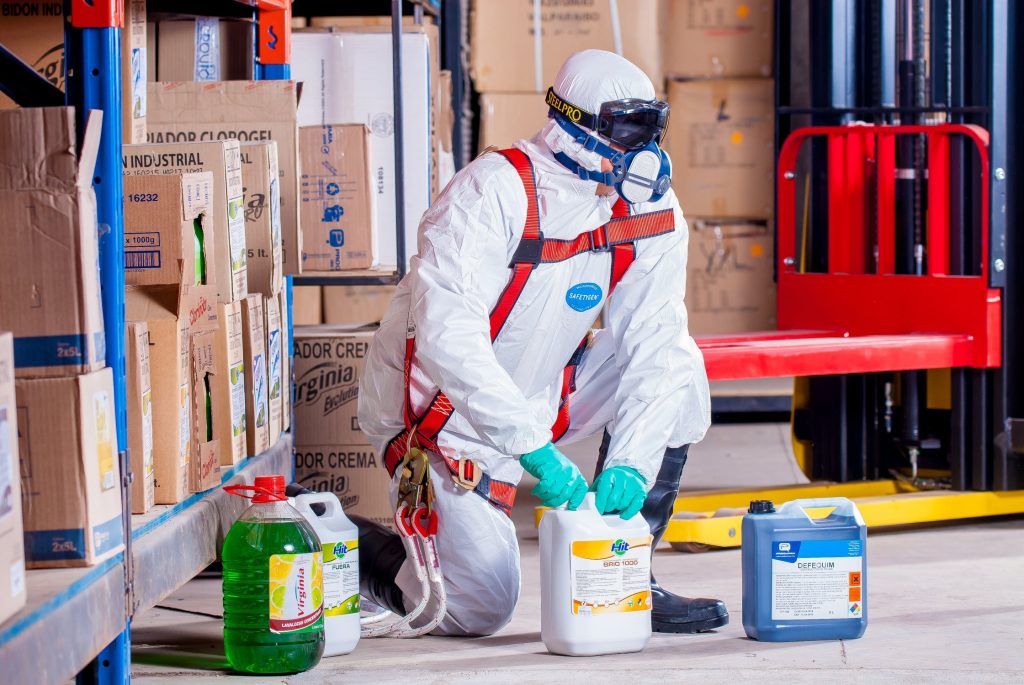A wheel refurbishment company has been sentenced after a 16-year-old apprentice was overcome by vapours from chemicals used to strip and clean alloy wheels.
The apprentice had entered an “acid room” to retrieve wheels from a barrel containing dichloromethane (DCM), methanol and hydrofluoric acid. A colleague found him unconsciously slumped over the barrel.
An investigation by the Health and Safety Executive (HSE) found that the company had failed to:
- Install an exhaust ventilation system in the acid room; and
- Maintain respiratory protection equipment (RPE).
The company had not properly risk-assessed the chemical wheel stripping process and, as a result, did not have appropriate controls such as exhaust ventilation. Although staff were provided with RPE, it was not kept in good working order.
Unworn safety equipment
Investigators found on this occasion, and previously, that the apprentice was not wearing RPE when in the acid room.
The investigation also found employees were not given sufficient information, instruction or training on the risks involved in using the chemicals. DCM poses a particular inhalation risk and is a restricted substance under the REACH chemicals regulation.
Wheelnut Ltd admitted breaking the Health and Safety at Work etc Act 1974.
It was fined £32,000 and ordered to pay costs of £1,718.
HSE
10 tips for managing young apprentices
It is important that employers are aware of the increased health and safety risks surrounding young people, who are less aware of workplace hazards and more vulnerable than older, more wary colleagues.
Here are ten top tips to help prevent accidents arising out of inexperience.
1. Induction
Apprentices should receive a full induction, where it is made clear what your policies, procedures and expectations are. It is your job to help apprentices to understand the importance of health and safety, so make sure their induction covers health and safety in detail.
Workers have a greater risk of injury during the first six months of a job, as they may not be aware of existing or potential risks. This risk is heightened in the case of young people.
Your risk assessment needs to take into account the characteristics of young people and activities that pose a significant risk to their health and safety.
Free Download: Definitive Guide to General Risk Assessments
Identify risks and keep your business compliant with this free guide
2. Assign a mentor
Have an experienced member of staff act as the apprentice’s work buddy/mentor. This will provide additional support and give your apprentice the opportunity to voice any concerns, which they may not otherwise be confident enough to discuss with managers. Encourage the mentor to regularly ‘check in’ with the apprentice.
3. Monitor progress
Make sure you hold regular meetings with your apprentice to emphasise safe systems of working and discuss their progress.
4. Offer support
Give your apprentice constructive feedback on their performance. Take the time to explain areas that need improvement so that they understand what standard is expected of them and can make required changes.

5. Take an interest
Take an interest in your apprentice, what their qualification involves and what their aspirations are for the future. Explore how you can support this. For example, could you offer the next level of apprenticeship?
Investing in a young apprentice may result in a loyal, committed and motivated member of staff.
6. Learn from the apprentice
Be willing to learn from your apprentice, particularly regarding their knowledge of technology and social media!
7. Set tasks
Encourage your apprentice to take on responsibility, for example, by giving them an opportunity to show what they can do on a small project.
8. Don’t make assumptions
Never assume your apprentice knows the basics of any job. They are likely starting with little/no experience or knowledge.
9. Revisit company values
Each workplace has its “organisational norms” – accepted worker behaviour or conduct. Use the introduction of your apprentice as an opportunity to re-evaluate these “norms”. If necessary, set new standards.
10. Be aware
Remember that apprentices aged 16-18 are not adults but young people who are still growing, adjusting and learning. They may also feel intimidated by working in an adult environment, especially if they have just left school.
Speak to the professionals
Ellis Whittam’s network of experienced Health & Safety Consultants can provide expert advice and hands-on assistance with managing the health and safety of apprentices, or indeed any aspect of your working environment or practices. For support, call 0345 226 8393.






